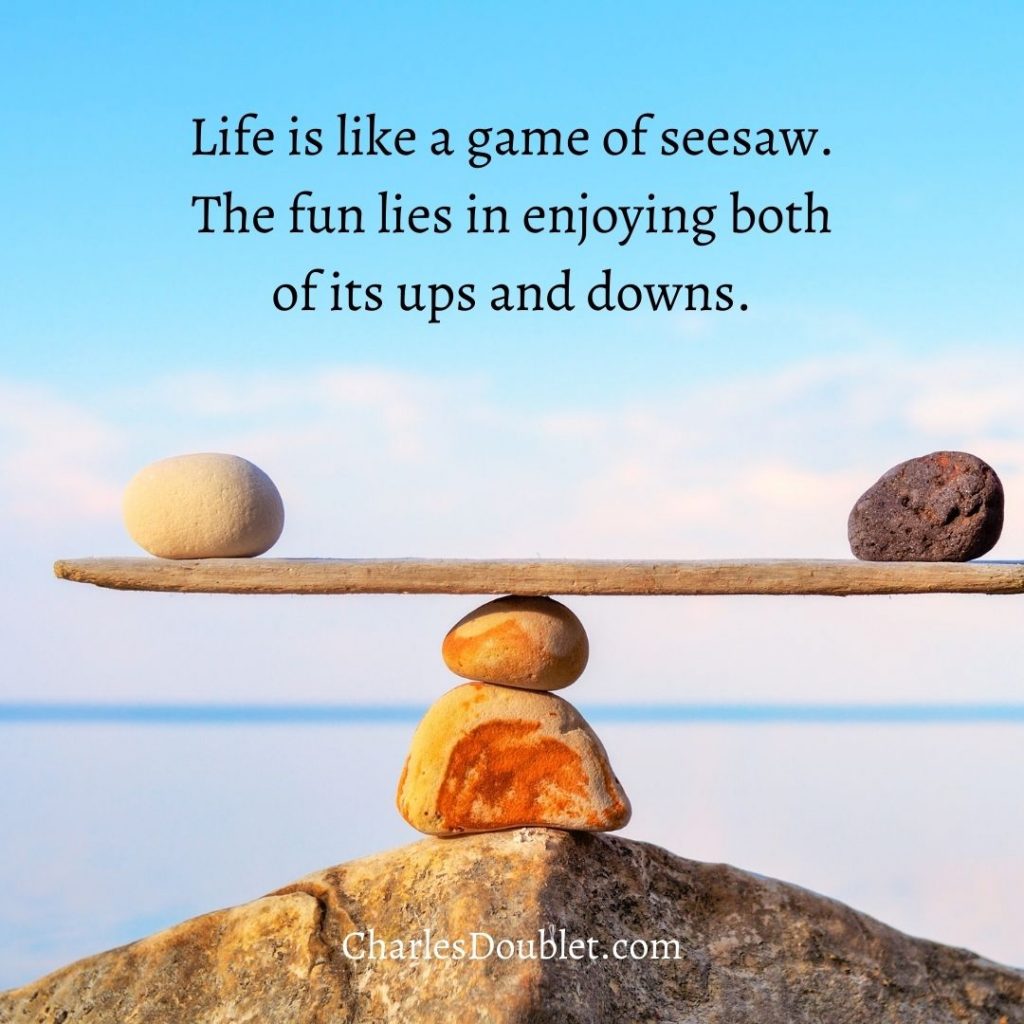It seems as individuals, we cannot stop making comparisons as we go through life.
Good or bad, right or wrong, winning or losing.
There’s a voice in your head. A non-stop chattering, judging, being critical noise.
This voice of yours basically does one of two things, on the one hand, it helps you to feel good about you and your life compared to those who are worse off than you.
But, more often than not, it does the reverse, that voice compares you to others who seem to be doing better and makes you feel poorly on where you are in life.
And the internet and social media are just making it worst.
But comparisons in and of themselves are not bad. No person is an isolated island, we live in a society that we learn how to make a space for ourselves, and comparisons allow you to create that space.
They allow you to define yourself, and they also allow you to determine your progress.
So, if you’re going to make comparisons, wouldn’t it be a good idea to make smart comparisons.
Get Off the See-Saw

The problem with most comparisons is that they are overly simplistic. Dualistic-polarity of either/or.
When life is all that simple.
In life, sometimes you’re up and sometimes you’re down. Some days are good, others you’d like to forget.
Do these days define you as good or bad, strong or weak, or just a person going through life and trying your best?
The problem is not being up or down, the problem is in the perception of seeing yourself as up or down.
“We are all apprentices in a craft where no one ever becomes a master.”
― Ernest Hemingway, The Wild Years
The fact of the matter is that you are both good and bad, strong and weak, up and down, it always comes down to a better question, “Compared to what or who?
Mastering Yourself Through Martial Arts

Most people are aware of marital arts and its belt-ranking system.
Starting as a white-belt beginner, a student goes through various belt-ranks until they earn the coveted black-belt.
Even in styles that do not use belts, tai chi, kali, and boxing are examples but they still break groups of students into beginner, intermediate, and advanced pods.
The belts offer a reasonable system to help students to train and practice together. Advanced students cannot do techniques against junior students that have not learned them yet. In sparring, junior students initiate the encounter by attacking first.
It offers a great template for students of different skills to workout and train together.
It also offers a great way to make healthy comparisons.
An intermediate-level student can look to the advanced-students to see how much more she has to learn and grow. And, at the same time, she can look to the beginners, to see how far she has already grown.
And life is like that. Every day, there will be people ahead of you and some people behind you, and you’re just somewhere in the middle. Neither good nor bad.
Using Comparisons to Create Success
Once you understand that you will always be in the middle, neither good nor bad, then you can use comparisons in a way to create greater success.
Look to those who are better than you and learn from them.
By the way, as a little bit of martial arts trivia, the Japanese word, sensei, which many Westerners misinterpret as teacher or master actually means “born before.”
A sensei is someone who started along the path before you, she got a head start, so she’s in front of you for now.
There’s no rule that says you can’t overtake her, and while I was training under GM Han, you would see that all the time. Life would sometimes get in the way of training and people would take breaks while their classmates kept on training and moved on ahead.
So healthy comparisons, look to their seniors to see how far they can go. They help their juniors by sharing what they have learned, helping them to grow.
And in the process, they train with their peers, to test themselves against and to support each other for further growth.
And you can also do this in your own life, even if you never step onto a martial arts mat.
Look to those that are doing what you one day wish to do. Watch them, learn from them, if possible, see if they would be willing to teach you.
Then find people to help. There will always be people you can help to improve their lives, help them, and in the process of helping them, how much you already do know, how strong and wise you already are.
Third, find a group of peers, those who are around your level and ability. Test and help each other on how to learn and grow. Try out different strategies and tactics, sharing what you’re learning and noticing.
Do This With Yourself on a Regular Basis

Even if you can surround yourself each day with teachers, students, and a peer group, you can still challenge yourself to grow and learn each day.
In the image, you can see a simple tracking system that I learned from Anne-Laure le Cunff of Ness Labs, she calls it Plus/Minus/Moving Forward. Simple enough, lol
It’s a super simple system that’ll help you to track your wins and how you move forward from your challenges.
Each day, or week, depending on how much you want to track, you note down your wins (+), the challenges or hurdles you stumbled on (-), and how you want to move forward from where you are now (–>).
It’s so simple but don’t let that fool you. Too often we don’t track our progress and we forget how far we’ve come.
We also tend to forget our stumbling blocks, and then chastise ourselves on why we didn’t move further faster, forgetting we had to pick ourselves up along the way.
A black belt is a white belt that got thrown down 100 times and got back up 101 times.
Comparisons are neither good nor bad, it is how you feel about the comparisons that is the issue.
Do they inspire you to achieve greater success or do they throw you down to the ground and make you want to sit out the game?
And the easiest way to become inspired to achieve more, help those you can. By doing this one act, you see how powerful you already are and you’re feeling good about yourself because you’re helping others.
And it’s a great way to get your head and heart back in the game.
What do you want to achieve? Who has done it already and how can you learn from them?
And who can you help by sharing what you’ve learned?
Leave a Reply